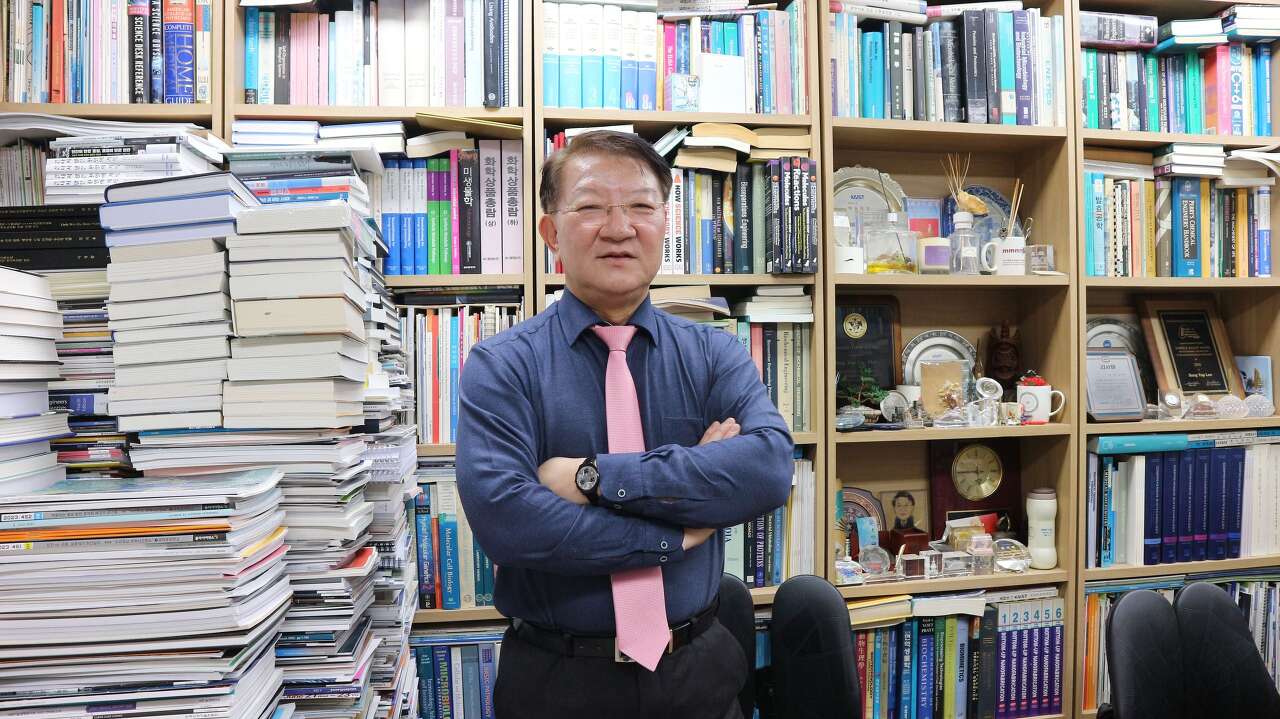티스토리 뷰
이상엽 교수의 혁신적인 친환경 플라스틱 기술: 시스템 대사공학이 만드는 미래
MoneyWalker 2024. 1. 11. 11:35목차
이상엽 KAIST 교수의 '시스템 대사공학'은 플라스틱 오염 문제 해결의 신호탄입니다. 박테리아를 이용한 생분해성 플라스틱 생산 방법으로, 전통적인 석유화학 방식을 대체하며 환경 보호에 앞장서고 있습니다. 30년 간의 연구와 AI 기술의 결합으로 기후위기 대응 및 지속 가능한 미래를 위한 새로운 길을 제시하고 있으니, 이 교수의 연구가 어떻게 세상을 바꿀지 기대되네요. 한국에도 훌륭한 사람 많아요!
1.Storytelling
한국어 버전
이상엽 KAIST 생명화학공학과 특훈교수 겸 연구부총장이 창시한 '시스템 대사공학'은 환경 문제, 특히 플라스틱 오염 문제에 대한 혁신적인 해결책으로 주목받고 있습니다. 미국의 비영리단체인 ‘5대 환류대연구소’에 따르면, 전 세계 바다에는 171조 개 이상의 플라스틱 쓰레기가 있으며, 이는 지난 10년 동안 10배 이상 증가한 수치입니다. 유엔 회원국들은 이러한 문제를 해결하기 위해 '국제 플라스틱 협약'을 준비 중입니다.
이 교수는 30년 전부터 플라스틱의 생산 방법을 친환경적으로 변화시키려는 연구를 시작했습니다. 그의 연구는 박테리아를 이용하여 플라스틱을 생산하고 분해하는 방법을 포함하고 있으며, 이는 전통적인 석유화학 기반의 공장 방식과 대비됩니다. 이 교수의 연구는 유전자 조작을 통해 박테리아의 대사 과정을 최적화하여 원하는 물질을 생산하고, 이 과정에서 대사공학, 합성생물학, 시스템 생물학, 진화공학의 다양한 도구를 사용합니다.
이상엽 교수의 연구팀은 바이오기반 고분자를 생성하여 생분해성 플라스틱을 만들었으며, 나일론과 같은 폴리아마이드 성분을 바이오 방식으로 생산하는 데 성공했습니다. 이러한 생분해성 플라스틱은 자연환경에서 완전히 생분해되어 미세플라스틱 발생 우려가 없습니다.
이 교수의 연구에는 인공지능(AI)도 활용되고 있습니다. AI는 실험 과정을 대신하여 미생물의 유전자 조작을 예측하고 최적화하는 데 사용되며, 이는 전통적인 실험 방법보다 훨씬 빠르고 효율적입니다.
이상엽 교수는 30년 동안의 연구 경험을 바탕으로 기후위기와 고령화 사회 등의 문제를 해결하기 위한 새로운 연구 방향을 모색하고 있습니다. 그의 연구실은 다양한 분야의 연구원들로 구성되어 있으며, 그들은 고분자, 화학물질, 천연물, 컴퓨터 모델링 등 다양한 주제에 대해 연구하고 있습니다.
이 교수는 자신의 연구가 환경에 긍정적인 영향을 미치고, 상용화를 통해 세상을 바꾸는 데 기여하길 바라며, 연구의 지속적인 발전과 다각화를 추구하고 있습니다.
영어 버전
Professor Sang Yup Lee of the Department of Chemical and Biomolecular Engineering at KAIST, who also serves as the Vice Chancellor for Research, has pioneered 'Systems Metabolic Engineering,' drawing significant attention as an innovative solution to environmental issues, particularly plastic pollution. According to the American non-profit '5 Gyres Institute,' there are more than 170 trillion pieces of plastic trash in the oceans worldwide, a figure that has increased more than tenfold over the last decade. To address this issue, United Nations member countries are preparing the 'International Plastic Agreement.'
Professor Lee started his research 30 years ago to make the production of plastics more environmentally friendly. His work includes using bacteria to produce and decompose plastics, contrasting with the traditional petrochemical-based factory methods. His research optimizes the metabolic processes of bacteria through genetic manipulation, utilizing tools from metabolic engineering, synthetic biology, systems biology, and evolutionary engineering.
Professor Lee's team has successfully created biodegradable plastics and bio-based polymers, including components for polyamides like nylon. These biodegradable plastics completely decompose in the natural environment, eliminating concerns about microplastic pollution.
Artificial Intelligence (AI) also plays a role in his research. AI is used to predict and optimize the genetic manipulation of microbes, replacing traditional experimental methods, making the process much faster and more efficient.
With 30 years of research experience, Professor Lee is exploring new research directions to address issues such as climate crisis and aging societies. His lab comprises researchers from various fields working on polymers, chemicals, natural substances, and computer modeling.
Professor Lee hopes his research will positively impact the environment and contribute to changing the world through commercialization, continuing to pursue the ongoing development and diversification of his research.
2. Probable conversation sentence
- "Did you hear about Professor Sang Yup Lee's new approach to tackle plastic pollution?"
- "이상엽 교수가 플라스틱 오염 문제를 해결하기 위한 새로운 접근법에 대해 들었어?"
- "Yes, his system metabolic engineering is quite a breakthrough."
- "그래, 그의 시스템 대사공학은 꽤 큰 돌파구야."
- "It's fascinating how he uses bacteria to both produce and decompose plastics."
- "박테리아를 이용해 플라스틱을 생산하고 분해하는 방법이 매우 흥미로워."
- "I read that his research could significantly reduce our reliance on fossil fuels."
- "그의 연구가 화석 연료에 대한 우리의 의존도를 크게 줄일 수 있다고 읽었어."
- "The use of AI in his experiments accelerates the development process, doesn't it?"
- "실험에서 AI를 사용하는 건 개발 과정을 가속화하겠지?"
- "Absolutely. AI predictions can save years of manual experimentation."
- "맞아. AI 예측은 수년간의 수동 실험을 절약할 수 있어."
- "His work is essential for a sustainable future, especially in combating climate change."
- "그의 작업은 지속 가능한 미래, 특히 기후 변화와 싸우는 데 필수적이야."
- "It's incredible that biodegradable plastics from his research fully decompose in nature."
- "그의 연구에서 나온 생분해성 플라스틱이 자연에서 완전히 분해된다는 건 놀라워."
- "This could be a major step towards reducing microplastic pollution."
- "이건 미세플라스틱 오염을 줄이는 큰 한 걸음이 될 수 있어."
- "I hope his innovations are quickly adopted for global impact."
- "그의 혁신이 전 세계적인 영향을 위해 빨리 채택되길 바래."
3. Important phrases
- Breakthrough (돌파구)
- "His system metabolic engineering is quite a breakthrough."
- 그의 시스템 대사공학은 꽤 큰 돌파구야.
- Accelerates the development (개발을 가속화하다)
- "The use of AI accelerates the development process."
- AI 사용은 개발 과정을 가속화한다.
- Essential for a sustainable future (지속 가능한 미래에 필수적)
- "His work is essential for a sustainable future."
- 그의 작업은 지속 가능한 미래에 필수적이다.
- Biodegradable (생분해성의)
- "Biodegradable plastics fully decompose in nature."
- 생분해성 플라스틱은 자연에서 완전히 분해된다.
- Global impact (전 세계적 영향)
- "I hope his innovations have a global impact."
- 그의 혁신이 전 세계적 영향을 미치길 바란다.
4. vocabulary
| 영어단어 | 발음기호 | 한국어 뜻 | 예문 | 한국어 번역 예문 |
|---|---|---|---|---|
| Innovations | /ˌɪn.əˈveɪ.ʃənz/ | 혁신들 | His innovations are transforming the industry. | 그의 혁신들이 업계를 변화시키고 있다. |
| Sustainability | /səˌsteɪ.nəˈbɪl.ɪ.ti/ | 지속 가능성 | Sustainability is key in our business practices. | 지속 가능성은 우리 사업 방식에서 핵심이다. |
| Biodegradable | /ˌbaɪ.oʊ.dɪˈɡreɪ.də.bəl/ | 생분해성의 | Biodegradable materials are better for the environment. | 생분해성 물질은 환경에 더 좋다. |
| Metabolic engineering | /məˈtæb.ə.lɪk ˌɛn.dʒɪˈnɪə.rɪŋ/ | 대사공학 | Metabolic engineering is revolutionizing biotechnology. | 대사공학은 생명공학을 혁신하고 있다. |
| Decompose | /ˌdiː.kəmˈpoʊz/ | 분해하다 | These substances decompose naturally. | 이 물질들은 자연스럽게 분해된다. |
5. Conclusion
In conclusion, Professor Sang Yup Lee's innovative approach in systems metabolic engineering represents a significant stride towards solving the plastic pollution crisis. By utilizing bacteria for the production of biodegradable plastics, his research not only offers a viable solution to reduce plastic waste but also paves the way for a sustainable future. Incorporating AI into his research process enhances the efficiency and potential of his findings, making them more accessible and commercially viable. Professor Lee's dedication and pioneering work in environmental science and technology demonstrate the power of scientific innovation in addressing global challenges, inspiring a new generation of researchers and environmentalists.
'미래' 카테고리의 다른 글
| AI 고속도로 정책 울산 SK AWS 손잡고 글로벌 허브 도약하는 이유 (1) | 2025.06.22 |
|---|---|
| LG유플러스의 메타버스 전략: 어린이와 대학생을 위한 혁신적인 플랫폼 (101) | 2024.01.02 |
| 셰어의 메타버스 크리스마스 앨범 출시: 혁신적인 가상 패션과 음악의 만남 (60) | 2024.01.01 |
| 애플의 새로운 도전: 환경을 생각하는 탄소 중립 Apple Watch 출시! (29) | 2023.09.14 |
| 한국 정부의 스타트업 키우기 대책: K스타트업 글로벌 진출까지! (0) | 2023.09.01 |






